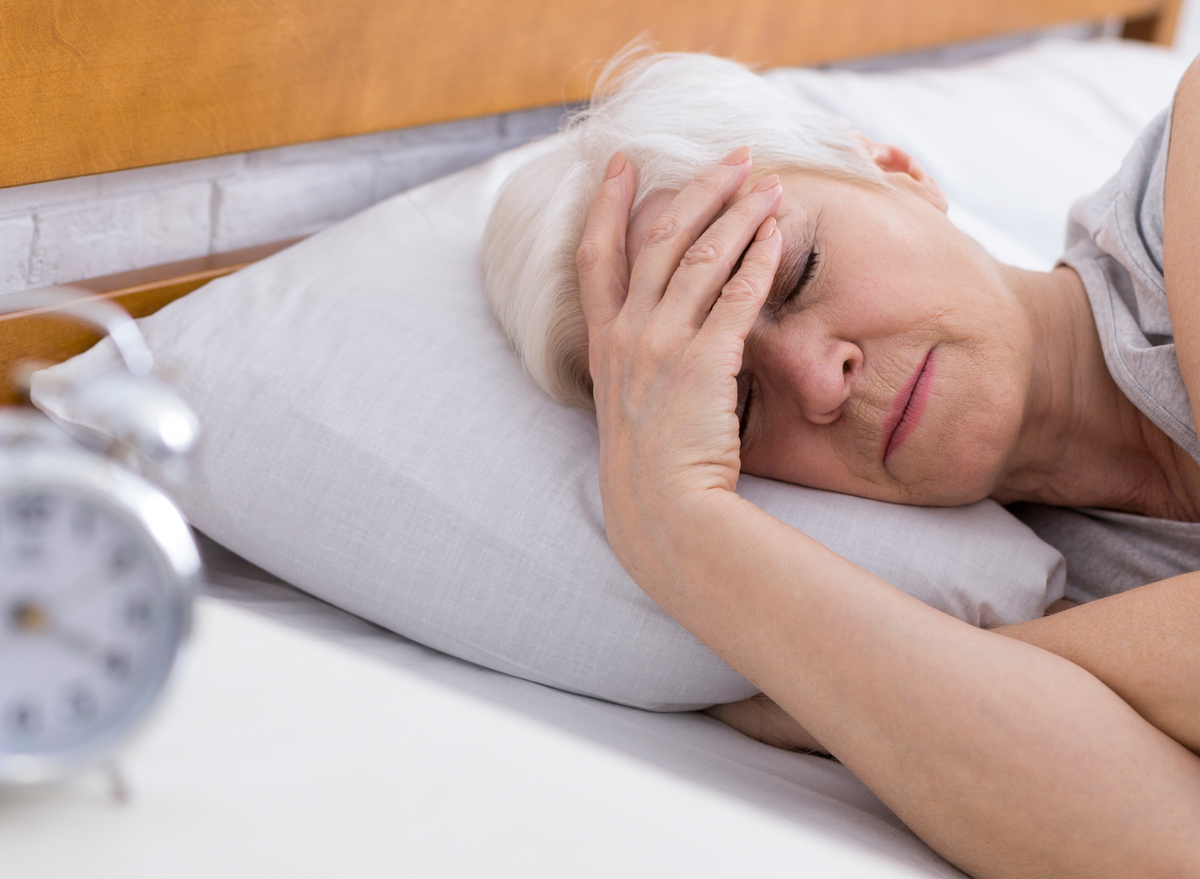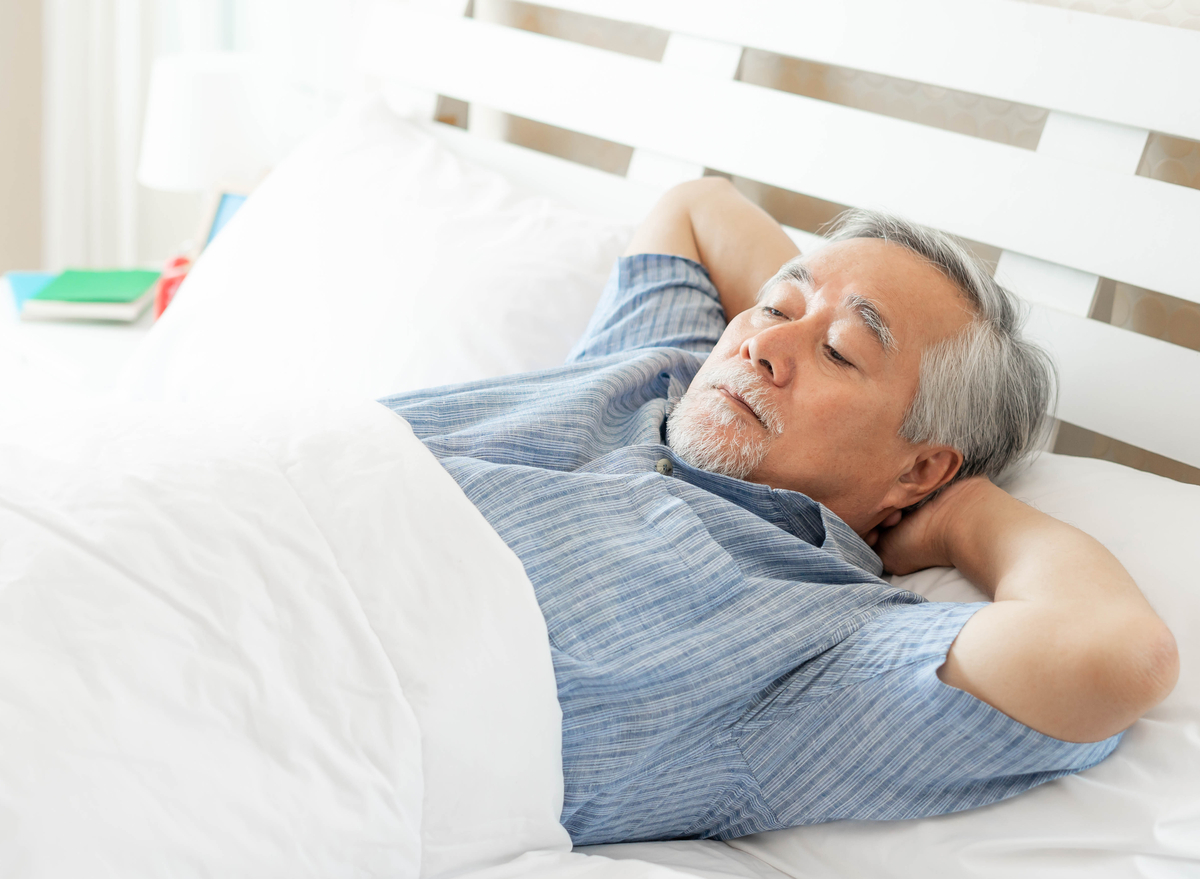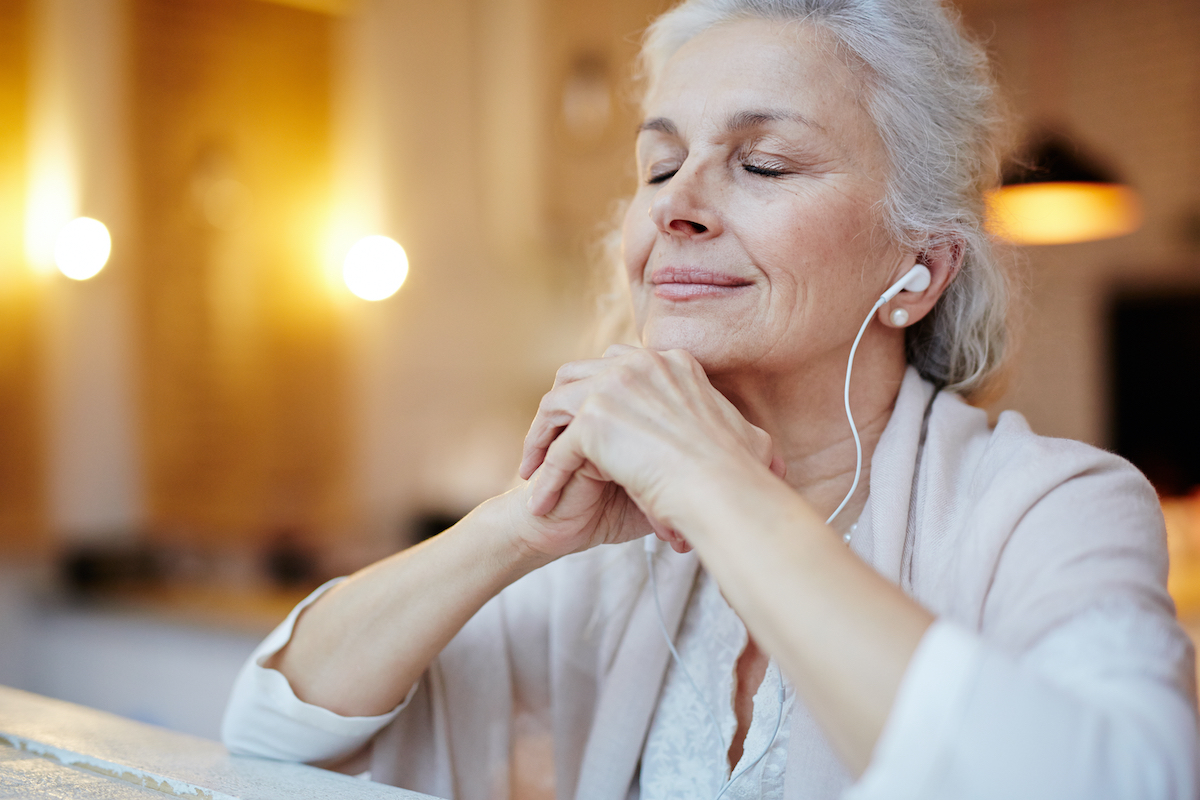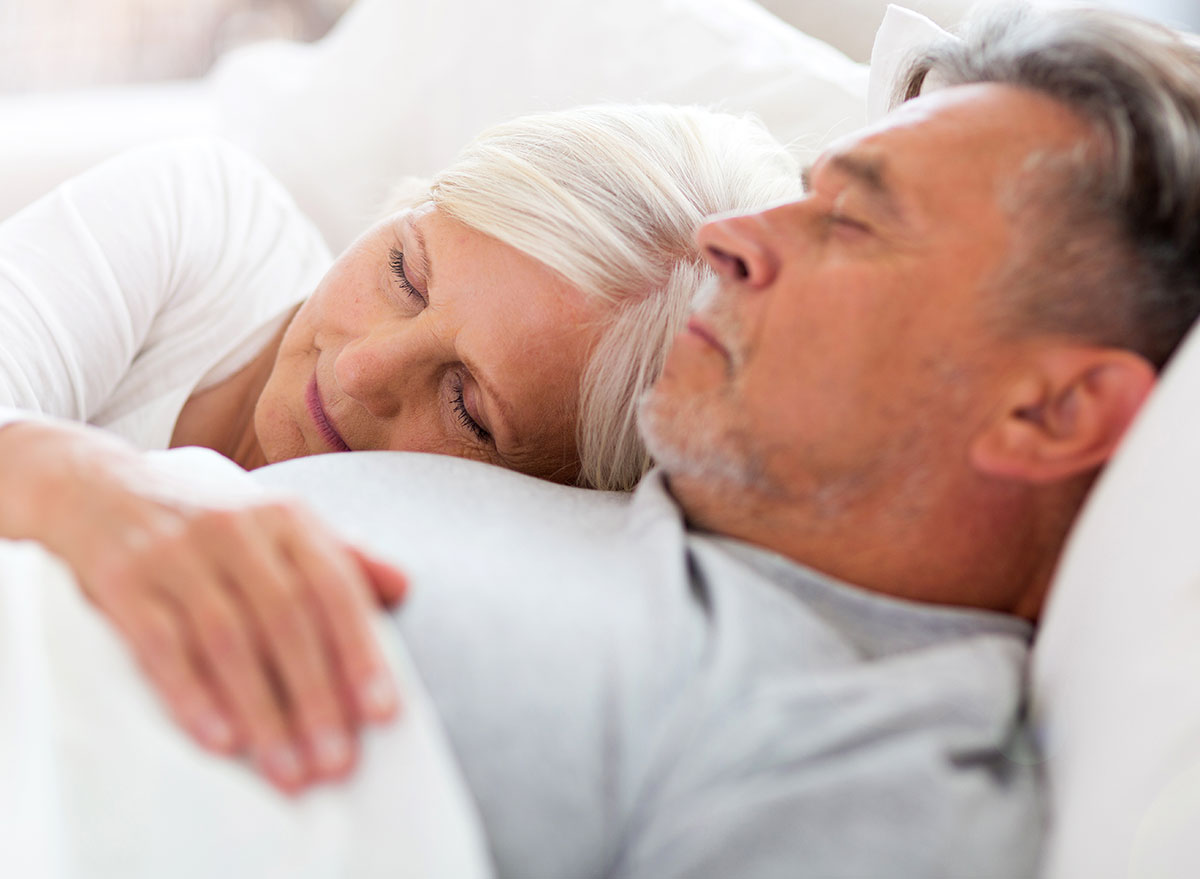Over 60? Here Are the Reasons You’re Not Sleeping, Science Says

Sleep, similar to any other natural body function like breathing or blinking, is non-negotiable when it comes to being healthy. Frustratingly, however, sleep doesn’t come quite as easily as those other physical necessities. We’ve all been there: Tossing and turning all night, with each glance at the clock serving as a rude reminder that morning will arrive soon.
Insomnia, especially nowadays, is incredibly common. That being said, older adults in particular often complain of sleep issues like trouble falling asleep or multiple nighttime awakenings. The regularity of these occurrences among older individuals has led to the myth that older adults don’t need as much sleep as younger people. This is a major fallacy! Per the CDC, whether you’re 25, 65, or 95 you still need at least seven hours of sleep per night to be at your best.
If anything, sleep is more important as we grow older and enter the later portion of our lives. Consider this study published in the scientific journal Neuron: Scientists concluded that deep sleep is incredibly beneficial for older adults, as it serves to rejuvenate the exact brain areas known to deteriorate with old age. “Nearly every disease killing us in later life has a causal link to lack of sleep,” explains senior study author Matthew Walker, a professor of neuroscience and psychology at the University of California, Berkeley. “We’ve done a good job of extending life span, but a poor job of extending our health span. We now see sleep, and improving sleep, as a new pathway for helping remedy that.”
No one is saying a truly restful, restorative night’s sleep is easy, especially past the age of 60. Still, you may be failing to give yourself the best chance of entering dreamland. Keep reading to learn about a few possible reasons you’re not sleeping and how to rectify those mistakes. And next, check out These Walking Tips Can Help You Lose Weight After 60.
You’re not exercising enough

Exercise can feel like a hassle at any age, especially post-retirement. Most older adults are focused on vacations and grandkids, not treadmills and barbells. No matter how inconvenient it may feel, fitting some aerobic exercise into your schedule may be just what the sleep doctor ordered. One study published in Sleep Medicine tracked a group of older women with sleep problems as they performed just 40 weekly minutes of aerobic exercise for a total of four months. Sure enough, participants reported improved overall sleep quality and less tiredness during the day.
Another similar study published in The Journal of Geriatric Psychiatry and Neurology asked 30 older adults to exercise aerobically in the morning every day for a total of two months, while another 30 participants were instructed to complete the same workouts in the evening. Somewhat surprisingly, the evening exercisers actually experienced greater sleep improvements including faster sleep onset and improved slumber satisfaction. So if you’re not much of a morning person, don’t be afraid to get in a quick walk or jog after dinner. It may make all the difference come bedtime.
Related: Sign up for our newsletter for the latest health and fitness news!
You need more motivation

This tip may border on the philosophical, but one fascinating study published in Sleep Science and Practice reports older adults who feel motivated to wake up each and every morning tend to have fewer sleep issues. Researchers surveyed 823 older Americans (ages 60-100) on their sleep habits and quality. Those who reported “significant meaning” in their lives were less likely to experience sleep disturbances, sleep apnea, and restless leg syndrome.
“Helping people cultivate a purpose in life could be an effective drug-free strategy to improve sleep quality, particularly for a population that is facing more insomnia,” says Jason Ong, senior author of the study and an associate professor of neurology at Northwestern University. “Purpose in life is something that can be cultivated and enhanced through mindfulness therapies.”
As far as how to cultivate more meaning, that’s a question only the individual can answer. Broadly speaking, the best way for an older adult to find a new purpose in life may be as simple as staying busy. Keep a stacked schedule, and don’t be afraid to try new activities and hobbies.
Related: Doing This When You Sleep Triples Your Stroke Risk, New Study Says
You’re ignoring your “sleep hygiene”

You wouldn’t think of ignoring your usual hygiene like showering and brushing your teeth, but just how closely are you tracking your “sleep hygiene”? If you’re unfamiliar with the term, sleep hygiene, according to the CDC, is as simple as practicing good sleep habits. In other words, get to bed around the same time each night, disconnect from screens at least a half-hour before bedtime, and make sure your bedroom is dark, quiet, and at an ideal temperature.
You may have been able to stay up late one night and then hit the sack early the next when you were younger, but sleep hygiene becomes that much more important with old age.
“The most common reason for irregular sleeping in older adults is poor sleep habits,” comments Stephen Light, a Certified Sleep Science Coach and co-owner of Nolah Mattress. “Poor sleep habits include but are not limited to irregular sleeping schedules, frequent alcohol consumption at night, or sleeping while watching television. Older adults can improve their sleep quality if they strictly follow a fixed sleeping schedule while doing a pre-bedtime routine.”
“The pre-bedtime routine tells the body that it will sleep soon, triggering drowsiness and grogginess after doing said activity,” says Light. “In this scenario, sleep becomes more accessible when the mind and body are ready for sleeping.”
Related: Sleeping This Much Could Increase Your Risk of Obesity, New Study Finds
You could use a lullaby (seriously)

Lullabies are supposed to be for babies and toddlers, but some calming music before bed may do the trick for older adults as well. Recent research published in The Journal of the American Geriatrics Society analyzed five prior studies encompassing nearly 300 older adults over the age of 60 struggling with sleep issues. That analysis led to the noteworthy observation that those who listened to music 30 minutes to one hour before bed enjoyed much better sleep quality than the others.
Calm, sedative music (60-80 beats per minute) was more helpful than rhythmic tunes, and adults who consistently listened to music before bed for a full month appeared to reap the most sleep rewards. So, don’t give up on this approach after a night or two. It’s a long play when it comes to improving sleep.
Related: The #1 Worst Time to Exercise If You Love to Sleep
You’re napping too much

Can’t help but indulge in a few mid-day naps now and then? A refreshing nap can no doubt be a welcome respite from a busy day, but too much shuteye in the afternoon may lead to a sleepless night. The Mayo Clinic advises anyone struggling with sleep issues to avoid long daytime naps, as you may find yourself wide awake come bedtime.
If napping is an important part of your usual routine, the Sleep Foundation suggests catching some extra z’s in the early-to-mid afternoon and keeping your naps to under 20 minutes.
For more, check out This Is the Best Workout for Better Sleep, Science Says.








